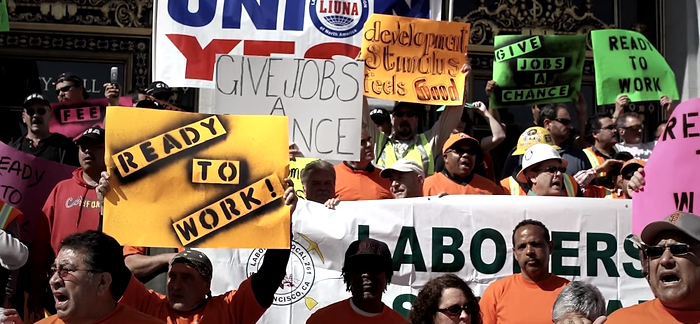Labor unions are designed to be a way to balance the power between an employer and an employee. From an historical context, this was necessary because employers were willing to create harsh working conditions and risk worker safety just to improve their profitability because they had all the power. By giving workers some of this power, they can still earn a paycheck while making sure they are safe while being productive. Today labor unions are being targeted by politicians as being unnecessary. Here are the advantages and disadvantages to consider when looking at what unions can provide workers today.
The Advantages of Labor Unions
1. Labor unions promote higher wages for workers.
When an employer doesn’t have a contract with an employee over wages, then they can pay whatever the legal minimum happens to be. There may be forces like employee shortages that can drive wages upward, but even then an employer will only pay whatever the minimum necessary amount. Labor unions created contracted wages which are almost always higher than non-union wages.
2. Labor unions negotiate better benefits.
Some employers don’t even offer benefits today. Labor unions, as part of the contract negotiation process, include benefits as part of the discussion so that a worker’s salary can go further. An employee that pays $190 per month in healthcare benefits makes $1,200 less per year than an employee that pays $90 through union negotiations.
3. Labor unions protect jobs.
An employee that is hired without a contract is generally treated as an “at-will” worker. This means they can be fired for virtually any reason that is legal. Unionized workers can only lose their jobs if there is a just cause to do so because they have violated some policy or procedure. Arbitration and a grievance process are also typically part of the process to further protect employees from unjust termination.
4. It helps experienced workers keep their jobs in down times.
When a non-union employer needs to layoff employees, the most expensive and experienced staff tend to be the first ones to go. For unionized workers, the opposite is the case. The least experienced people get laid off first, allowing those with seniority to maintain production levels for a company.
The Disadvantages of Labor Unions
1. It can promote favoritism within the ranks.
In union jobs, the person with the most seniority is generally the candidate that receives a promotion or a higher preference for an open position. Instead of hiring on experience, the length of employment becomes the main factor involved. This can promote favoritism because the same experienced workers can move into jobs they want and leave the crumbs for everyone else.
2. It can be difficult to terminate a difficult employee.
Contracted employees have rules to follow. If they aren’t ethically following those rules, but they are performing as expected based on their employment contract, then an employer might not be able to fire someone. This is why it is so important to have specific language in a negotiated contract about termination-worthy actions or behaviors. Otherwise someone who does just one task during the day could keep their job.
3. Unions don’t provide a place of individuality.
A labor union is a group of workers that have come together to support specific causes, contracts, working conditions, and more. When this happens, they lose their individuality. The union might decide to take action in a way that an individual work disagrees with completely. That worker is still bound by the decision or they can choose to leave the union – which means they might lose their employment.
4. Labor unions cost money.
It can cost several hundred dollars to join a union. A percentage of a worker’s paycheck is generally taken to pay these dues. Some unions may also require an initiation fee for workers to join. This cost pays for union official salaries, political lobbying, and other costs that are designed to benefit the worker. Those allocations are often outside of individualized control, however, so workers may not always agree that the money they are giving the union is being spent wisely.
These labor union advantages and disadvantages often create a divide between people who support unions and those who do not. Some industries benefit from labor unions and others may not, but we can all agree that worker safety and fair wages are important for all workers. A labor union steps in to make sure that happens if employees are unable to self-regulate and that can be a good thing.




